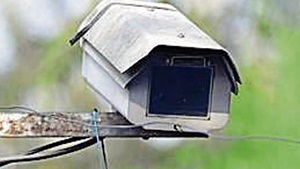The Delhi government is going to install 1.14 lakh CCTV cameras outside houses and shops, instead of using public infrastructure. Owing to issues related to ownership of the cameras and electricity supply to operate them, Aam Aadmi Party (AAP) legislators on Sunday stated that these devices will be put up only on walls of residential units and exteriors of shops. Installing CCTV cameras across Delhi has been a flagship project of the AAP government, which said that the move will help in ensuring women’s safety in the city.
Work has begun on installing cameras under the project at chief minister Arvind Kejriwal’s assembly constituency – New Delhi. The public works department, which is executing the project, said the constituencies where installation works can begin are being picked on the basis of completion of survey. “The survey to identify spots in residential and market areas where these cameras will be installed is being conducted by the MLAs and resident welfare associations. For those who have submitted their list of locations, work is being started there,” the official said.
AAP’s Model Town MLA, Akhilesh Pati Tripathi said camera installation in his constituency will begin from June 15. “All legislators are distributing a form or an undertaking to residents and shop owners who want to install a CCTV camera on the outside wall of their house or shop. They can even refuse to have the cameras outside their house. We are identifying the places with the assistance of resident welfare associations ,” he said. Tripathi also said that electricity to run these cameras will have to be provided by the resident or the shop owner. “The government will give subsidy to such residents for the electricity used for the functioning of the CCTV camera,” he said.
Kirari MLA, Rituraj Govind, said “We are not choosing public property such as street lights and electricity poles because the government was facing ownership issues. Many authorities own public properties and the multiplicity would have affected the maintenance of these cameras. So, individual house owner on whose property the camera is fitted and RWA or market association will be responsible.”
An undertaking that the legislators are getting filled by house and shop owners, where these cameras will be fitted, asks for details of the electricity connection so that the money spent on supplying power to the camera(s) is reimbursed by the government. The power department official said the matter has been discussed with power distribution companies too.








